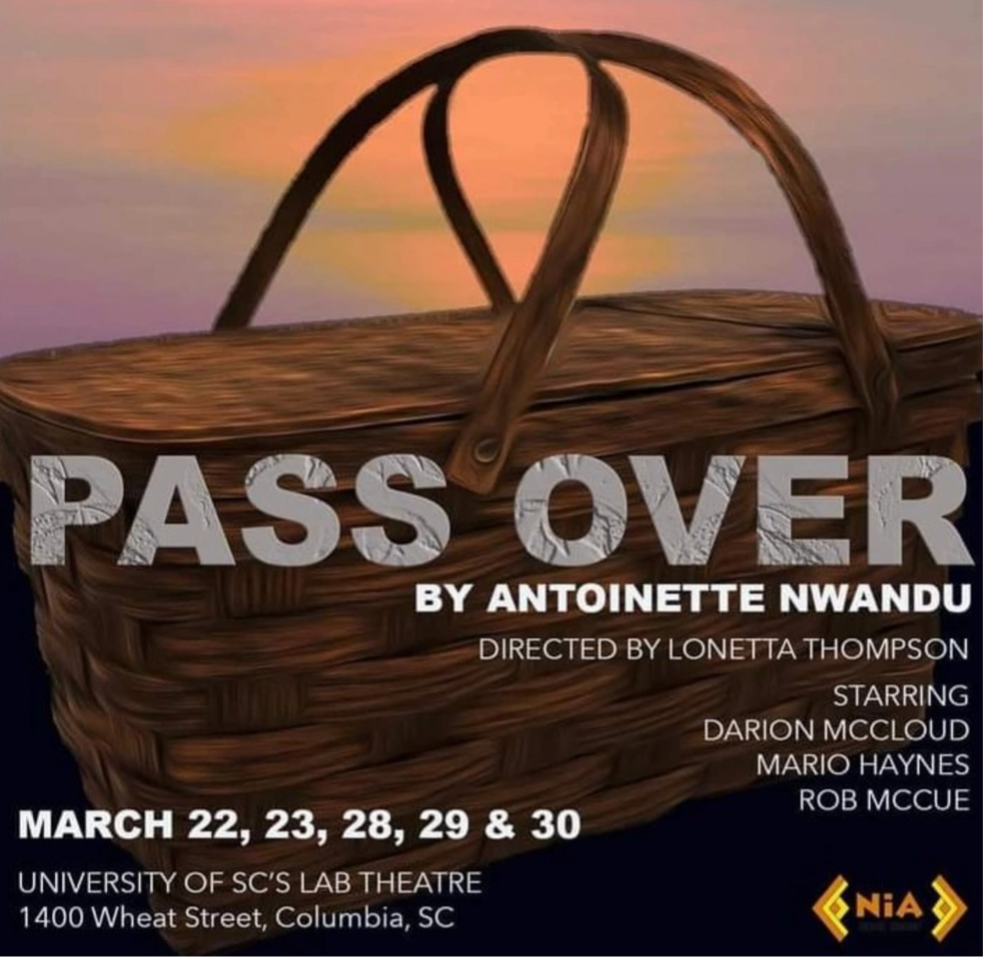Local theatre company NiA was one of the many organizations impacted by the COVID-19 pandemic. Now, in these semi-post-pandemic times, NiA is performing their first large-scale in-person event in months. Over the next two Saturdays, NiA will be showcasing a long-loved project and a newer venture, as well.
Darion McCloud, who has led NiA for 23 years, discusses how difficult it was to not be able to perform during the times when people needed it the most, especially when their mission is rooted in storytelling and literacy.
“That's what we're about. We're about telling stories that don't usually get told, for people that you don't usually get a chance to hear them,” McCloud shares, “COVID effectively shut us down. We had a few small ventures out there: one or two with One Columbia, a Kids in Print for Richland Library, and one called Cocky's Reading Express from the University of South Carolina.”
Now, the group is coming back with two events, four performances, repeating on two consecutive weekends. HOLLA! a NiA “family staple,” will kick off both Saturdays at 10am, and Eavesdropping, a play by Crystal Aldamuy, will end both Saturdays at 9pm. HOLLA! is a family show for all ages, and Eavesdropping is aimed at adult audiences.
McCloud says the shows the group are doing are a direct response to the outpouring of love that not only NiA received over the pandemic, but that he himself benefitted from after a serious stroke. This performance is not just a comeback but a way to say thank you.
“This is my way, and our way, of saying we love you, too. That's why it was important for these shows to be free,” McCloud reveals, “We want these shows to be free to our people, the city, free to anyone who wants to come and who wants to enjoy.”
HOLLA! was the first event NiA ever did, starting back in 1998 for Somali Bantu, and is a multimedia event that changes in shape, style, and participants each time. For this performance, NiA is featuring the Upstart Crows, a local Shakespeare Company of young actors. The same show will take place both Saturdays, but there will be slight differences due to the spontaneous nature of the event.
“HOLLA! is exactly what it says—it's big, it's loud, it's color. There's music, there's a lot of laughing, spontaneous dancing, storytelling, finger plays, and more,” McCloud effuses, “And it's for everybody; if you're an old dude like me and you come through, you think you're just coming with the kids, but you're going to find yourself caught up in the fun, too.”
In contrast, Eavesdropping is a short play in 5 vignettes that addresses themes surrounding love, loss, and living. Aldamuy, who has worked with NiA before, was driven to write this play by her desire to experiment with fully colorblind casting, where any race or gender could fill a role. Aldamuy started writing small sketches, and then combined 5 into this play.
“This piece is designed for playing with and exploring motivation and subtext, as well as gender, race, sexuality, and age in relationships,” Aldamuy intimates, “And how the audience, as voyeurs, makes assumptions about the deeper meaning behind someone else’s words based on what they look like and who they are talking to.”
The five vignettes are as follows: First Impressions—two people on their first date; The Long Road Home—a person meets with their ex-spouse’s lover; Final Thoughts—estranged siblings wait for their mother’s ashes; Circling—old loves bump into each other after nearly a decade apart; Collison Course—two people meet on the anniversary of their mutual friend’s death.
The first act will be true to script and fairly identical both weekends; however, after a short intermission, the second act will see audience interaction, with people watching called up to audition and perform previous scenes of the play.
“After the act break, we're going to ask the audience to come up, and we're going to run it like an audition. We hand them a script right there, but me and the audience are the casting director, so I get to say, ‘Okay, that was really good, Kevin. Could you do the scene again in an English accent?’” McCloud details, “So we get to have fun like that, but also people get to think about how an individual actor impacts a scene. It's a little bit of education, but it's a lot of fun.”
NiA knew it was time to come back and start telling stories again—audiences needed to engage, with art on the stage and with one another. They chose these shows both for the level of audience interaction and because they are easily manageable under the safety precautions NiA is following for COVID-19.
The performances will happen on Saturday, June 19, and Saturday, June 26, at their CO-OP at 1013 Duke Street with HOLLA! at 10am and Eavesdropping at 9pm both weekends. There will be outdoor seating, Porta Johns, and safety precautions in place for the safety of patrons. The event is free and first-come, first-served—approximately 100 people can be accommodated.
“We hope there will be a lot of fun afterwards as well for people who want to hang out and talk about the show,” McCloud offers, “We're just hoping you come, bring yourself, your imagination, your fun, and hopefully a friend too.”
McCloud would like to thank several people helping as performers and behind the scenes: Heather McCue, Joseph Eisenriech, Lonetta Thompson, Katie Mixon, Deon Turner, Beth Dehart, and JB Frush-Marple with special thanks to One Columbia for sponsoring.
If you’d like to support NiA, you can give to their GoFundMe, which was initiated, after not making money for a year, to fund their return to performances and has stayed open for additional support: https://gofund.me/cc1cff68
—Christina Xan
















